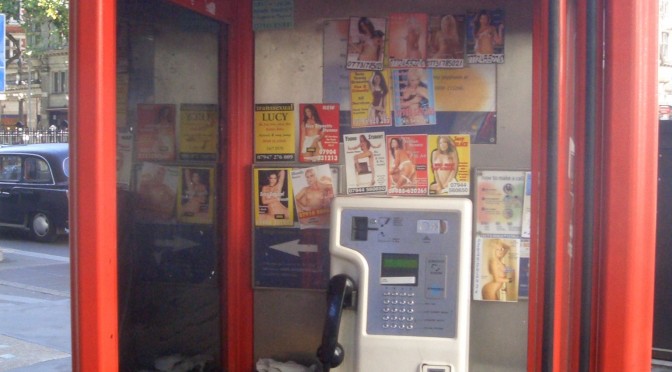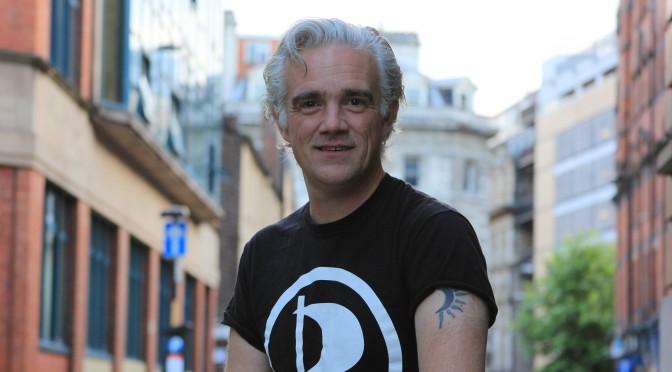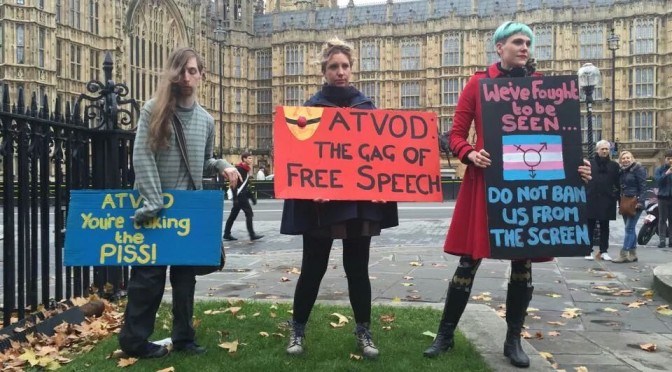If you want to attract mass support for a dodgy cause, the trick is to sound eminently reasonable. Extremists tend to alienate most people, including those that are inclined to agree with them. If you have extreme objectives, the important thing is to deny them vociferously, however implausible the denial. Remember that most of your supporters don’t pay close attention to the detail: it’s the presentation that counts.
The far-right know this. The British National Party abruptly switched from an anti-Asian message to an anti-Muslim one within days of 9/11. Their target (working class Pakistani communities) hadn’t changed, but the presentation had. Similarly the English Defence League, eager to avert accusations of fascism, tried to show how pro-Jewish they were by carrying Israeli flags on their protests. “You see,” they were saying, “how can we be Nazis when we love Israel so much?” (although their supporters didn’t always get the message).
The anti-sex movement has had similar presentational problems. The powerful campaigner Mary Whitehouse had become widely mocked by the younger generation by the end of the 20th century. The new generation could no longer be convinced that enjoying and flaunting their sexuality was a bad thing. It seemed that the fear of sex had become a thing of a more prudish past.
The Whitehouse style of moral outrage gave way to a new presentation, re-wrapped in feminist terms. The new anti-sex movement talked in terms of objectification rather than decency or permissiveness, and tried to demonstrate that sexual expression was harmful to women, and thus censorship could be justified in the name of feminism. But beyond the realm of student unions and Guardian comment pages, anti-sex feminists suffered from the same problems that had afflicted Whitehouse: they were seen as prudish, humourless and ideological.
The biggest problem with building a popular anti-sex movement is that most people like sex. Trying to ban all visible displays of sexuality is unlikely to attract mass support, especially when the reasoning (“OMG Objectification, Sexualisation and RAPE CULTURE!!!”) is so easy to pick apart, given the chance for debate.
The problem is one of presentation. Just as the far right was forced to adopt a “we’re not racist, but…” approach, so the anti-sex movement had to learn to to be more subtle than repeating “porn is rape”. A soft target for censorship had to be found – one that attracted little sympathy. Enter No More Page 3.
The success of the No More Page 3 campaign has been based on two decisions: first, to pick the widely-hated Murdoch-owned Sun newspaper as the target for censorship; and second, to deny that their blatantly anti-sex, pro-censorship campaign was either anti-sex or pro-censorship. The first move was smart; the second took sheer brass nerve, reminiscent of Saddam Hussein’s Information Minister Muhammed Saeed al-Sahaf (aka Comical Ali), who famously claimed Iraq was winning the war, against a backdrop of invading American troops.
As well as nerve, denying the obvious with a straight face takes a good deal of PR expertise and media training, and NMP3 clearly has no shortage of such resources. In politics, most people follow the voice they like, not the one with reasoned argument, and the nice ladies of NMP3 have fashioned themselves an image as the Women’s Institute of the anti-sex movement (though of course, they’re NOT anti-sex). They have successfully formed a broad church ranging from middle-English Christians and girl guides to various strands of feminism and the puritan left.
Last week, my long-held ambition to meet NMP3 came to fruition, when I was invited to debate the issue against a NMP3 representative at Loughborough University. The NMP3 “argument” is almost identical to the anti-porn one that I’ve found so easy to overturn in numerous debates; the big difference is that NMP3 caveat everything they say with “But we’re not anti-sex, we only care about Page 3”.
Thus: Naked models “objectify women” BUT ONLY WHEN THEY’RE ON PAGE 3! WE LOVE PORN!; Bare female breasts contribute to a culture of misogyny and sexism BUT ONLY WHEN THEY’RE ON PAGE 3! WE LOVE BOOBS! And so on…
It’s all so silly, one should laugh; except that 250,000 people have signed a petition on the back of this nonsense, and various public figures, including MPs, have supported the campaign.
The debate itself felt like some combination of Alice Through the Looking Glass and Orwell’s 1984. Bianca, the NMP3 representative, seemed to be treating the occasion as though she were a government minister, sent to appear on Newsnight to defend a policy she didn’t really agree with. So, for example, when I questioned whether she really didn’t have a problem with sexual imagery in general (for example, lads’ mags), she simply refused to answer, saying that her own views were irrelevant, and she had come to represent the official position of NMP3. When I pushed the issue, she embarked on a long, skilled and off-topic ramble of the type that Jeremy Paxman is so often forced to deal with.
Again, asked why NMP3 appears to have strong links with anti-sex organisations and individuals, the response was one of faux outrage: To label NMP3 anti-sex was totally unjustified! (Although I hadn’t actually done that). Yet she refused to provide any clarity as to why NMP3 mingles with anti-sex campaigners when it is a pro-sex organisation. Questioned as to why NMP3 attended the extremist Stop Porn Culture conference in London, she simply denied that they were anti-porn, but didn’t clarify why they had attended. Surely if an “anti-racist” had attended a BNP conference, they would at least have a case to answer.
I was genuinely impressed, and somewhat thrown, by the skilled use of doublespeak. When I pointed out the the lack of any research evidence linking Page 3 with harm against women, Bianca announced that NMP3 have never claimed Page 3 was harmful! And as I tried to stop myself falling off my chair, she then embarked on a speech listing instances of harm caused by Page 3: body image problems, a culture of sexism, and so on. So no evidence of harm, but lots of harm. Who needs evidence when you just know, deep in your heart, that it’s wrong? Again, doublespeak was much in evidence when dealing with the issue of censorship: NMP3 is definitely NOT in favour of banning anything, explained Bianca, before proudly stating that 33 student unions, with the support of NMP3, had voted not to allow sales of the Sun on campus. But – I questioned – isn’t that a ban? No, she replied, because NMP3 don’t call for legislation. The Sun isn’t banned from those 33 campuses. It’s simply not sold because the student unions voted to – er …. No, not ban it! Simply prevent it from being sold. There’s a word for that kind of thing… it’s on the tip of my tongue.
Similar wordplay is in evidence whenever NMP3 talk about their goals. They don’t want to censor anything! They simply want the Sun to remove Page 3 so people can’t see it any more. I was ultimately reduced to suggesting the attendees should look up the words “ban” and “censor” in a dictionary, as well as read 1984, to get an understanding for how skilled NMP3’s abuse of the English language was. Dictionary.com provides this definition of censor: “any person who supervises the manners or morality of others”… and what could better describe a mob of non-Sun readers trying to dictate what Sun readers can look at?
The debate ended with a stereotypical, and comical, student-leftie discussion about “capitalism”: It’s outrageous, claimed a speaker, that Rupert Murdoch is profiting from women! Ignoring the fact that “profit from women” happens anywhere that women choose to work, from banking to sport to journalism to… well, everything. The only solution to this horrible exploitation would be to ban all women from working! And although that may sound snarky, it reveals a truth about much that is said in the name of feminism these days: many self-declared feminists are working to reverse, not defend, the gains of the Women’s Lib movement.
No More Page 3 is establishing a dangerous pro-censorship precedent: that there are cases (or one case, anyway) where imagery of women must be suppressed for the wider good of all decent women and girls. It’s an old, moralistic viewpoint with a new twist. That precedent being established, where would the anti-sex, anti-woman witch-hunt end?







